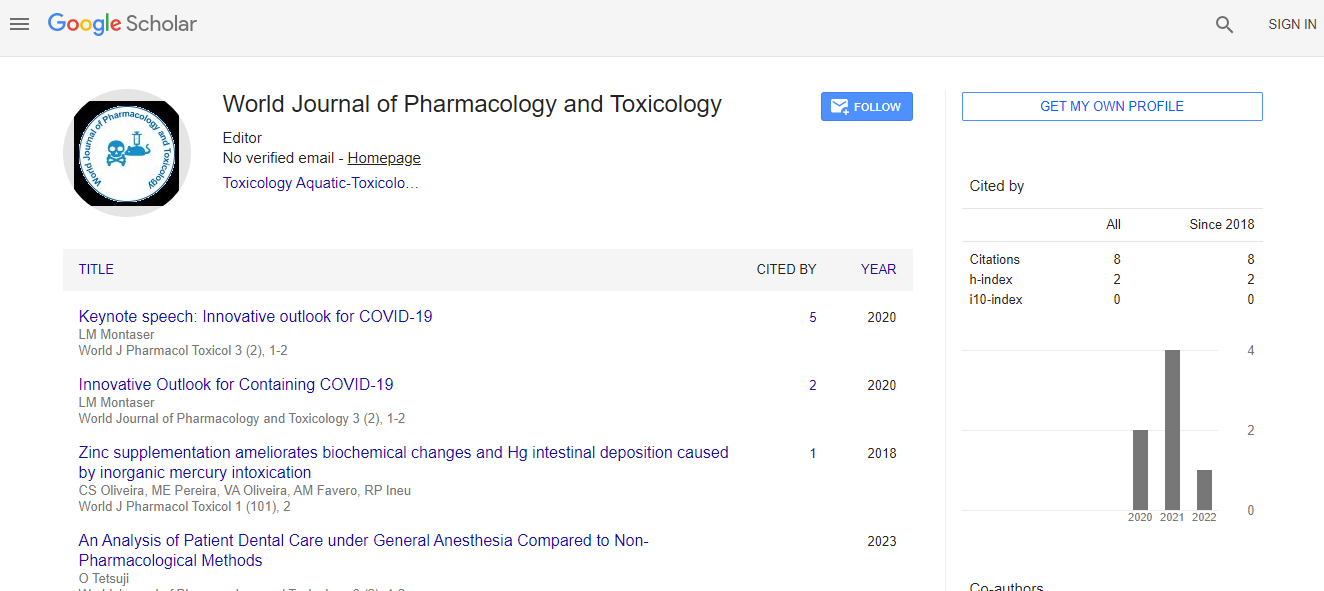Investigating the Potential for Memory Enhancer Activity in Wistar Rats Using Extracts from Chenopodialum album Leaves
*Corresponding Author: Rohit Malik, Department of Pharmaceutical Sciences, Kumaun University, Nainital, India, Email: rm000941@gmail.comReceived Date: Jan 02, 2024 / Published Date: Apr 17, 2025
Citation: Malik R (2025) Investigating the Potential for Memory Enhancer Activity in Wistar Rats Using Extracts from Chenopodialum album Leaves. World J Pharmacol Toxicol 08: 297.
Copyright: © 2025 Malik R. This is an open-access article distributed under the terms of the Creative Commons Attribution License, which permits unrestricted use, distribution and reproduction in any medium, provided the original author and source are credited.
Abstract
The frequent causes of dementia include Alzheimer’s disease (50%). Cognition deficits produced by cholinergic antagonism mimic the cognitive symptomology of Alzheimer’s disease. Scopolamine, a muscarinic receptor antagonist, is reported to impair Long Term Potentiation (LTP), and frequently used as amnesic agent for evaluation of antiamnesic effect of new drugs. Considering the adverse effects of synthetic drugs, there is search for natural remedies which are safe and effective. The World Health Organization (WHO) estimates that 80% of the world’s population presently uses herbal medicine for some aspects of primary health care, therefore, natural products may provide a new source of beneficial neuropsychotropic drugs provided they are adequately tested and their mechanisms are properly deciphered.
Various plants are being used in complementary and alternative medicines for nootropic activity. Attention is being focused on the investigation of the efficacy of plant-based drugs used in the traditional medicinal system because they are cheap, have little side effects and according to WHO, about 80% of the world population still rely mainly on herbal remedies.
The present work was under taken to evaluate the nootropic activity of Chenopodium album leaves extracts in scopolamine induce Alzheimer type Dementia in rats.
For the purpose ethanolic and aqueous extract of Chenopodium album leaves were prepared and screened for phytochemical constituents and nootropic activity.
For pharmacological activity Wistar rats weighing 150-200 g were randomly divided in to seven groups (n=6/ group). Group Ð served as normal control and received vehicle; group ÐÐ served as scopolamine control and received vehicle; group ÐÐÐ standard drug piracetam (150 mg/kg, i.p.); groups ÐV and V were administered with ethanolic extract of Chenopodium album leaves (250 and 500 mg/kg respectively, p.o.) and groups VÐ and VÐÐ received aqueous extract of Chenopodium album leaves (250 and 500 mg/kg respectively, p.o.). All treatments were given orally and intraperitoneal started after 14 days inject Scopolamine (except normal control group) and continued for 14 days along with Scopolamine.

 Spanish
Spanish  Chinese
Chinese  Russian
Russian  German
German  French
French  Japanese
Japanese  Portuguese
Portuguese  Hindi
Hindi 